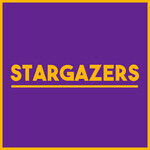"Sailing, sailing, over the bounding main ... " We're all familiar with this exhilarating maritime shanty. But why do we call the ocean the "main"?
"Main" is a shortened form of "main sea," meaning "open sea" or "high seas." Oddly enough, "main" can refer either to the main sea or to the mainland. From 1500 to 1800, for instance, the "Spanish Main" denoted both the mainland of the American continents controlled by Spain as well as the Caribbean Sea and Gulf of Mexico, enclosed by the Spanish-held mainland.
So, when sailors used this ambiguous term to give directions, e.g., "Sail to the second lighthouse, bear right and take a left on main," they often caused shipwrecks.
Let's look at some other familiar phrases derived from nautical adventures:
No. 1: "true colors" — Pirate ships and warships sometimes sought to deceive other vessels by flying the colors (flags and pennants) of a friendly or neutral nation. When unsuspecting vessels sailed close enough, the pretenders would raise their true colors and attack.
So, when people reveal their authentic feelings or nature, we say they're showing their "true colors," and we still use the term "false flag operation" when a group or individual commits a harmful act while pretending to be someone else.
No. 2: "flying colors" — A warship that emerged victorious from a battle largely undamaged, with all its colors still flying, was said to have "come off with flying colors." And we still say that someone who has succeeded or won by a wide margin has "come through with flying colors."
No. 3: "squared away" — A square-rigged ship usually travels fastest when its yards are "squared away," that is, set at a right angle to the ship's centerline to put the wind directly behind it. That's why, when all elements are in order and set to go for peak performance, we say that everything has been "squared away."
No. 4: "taken aback" — When a square-rigged ship tacks — shifts course so that the wind comes from the other side of the ship — its yards have to be swung around at exactly the right moment. If the timing is off, the wind can strike the sails, not from the back of the ship, but from the front.
When this happens, the ship often shudders ("shiver my timbers!") and stops. And sometimes the ship can even be "taken aback" — moved backward. This calamity made quite an impression on the sailors who witnessed it, and, to this day, when we're shocked or brought up short, we use their term to describe it: "taken aback."
Rob Kyff, a teacher and writer in West Hartford, Connecticut, invites your language sightings. His new book, "Mark My Words," is available for $9.99 on Amazon.com. Send your reports of misuse and abuse, as well as examples of good writing, via email to [email protected] or by regular mail to Rob Kyff, Creators Syndicate, 737 3rd Street, Hermosa Beach, CA 90254.
Photo credit: rujhan_basir at Pixabay






View Comments